The personal cost of soaring prices
Latest figures show that 41% of UK population has cut back on food and essentials as inflation continues to rise
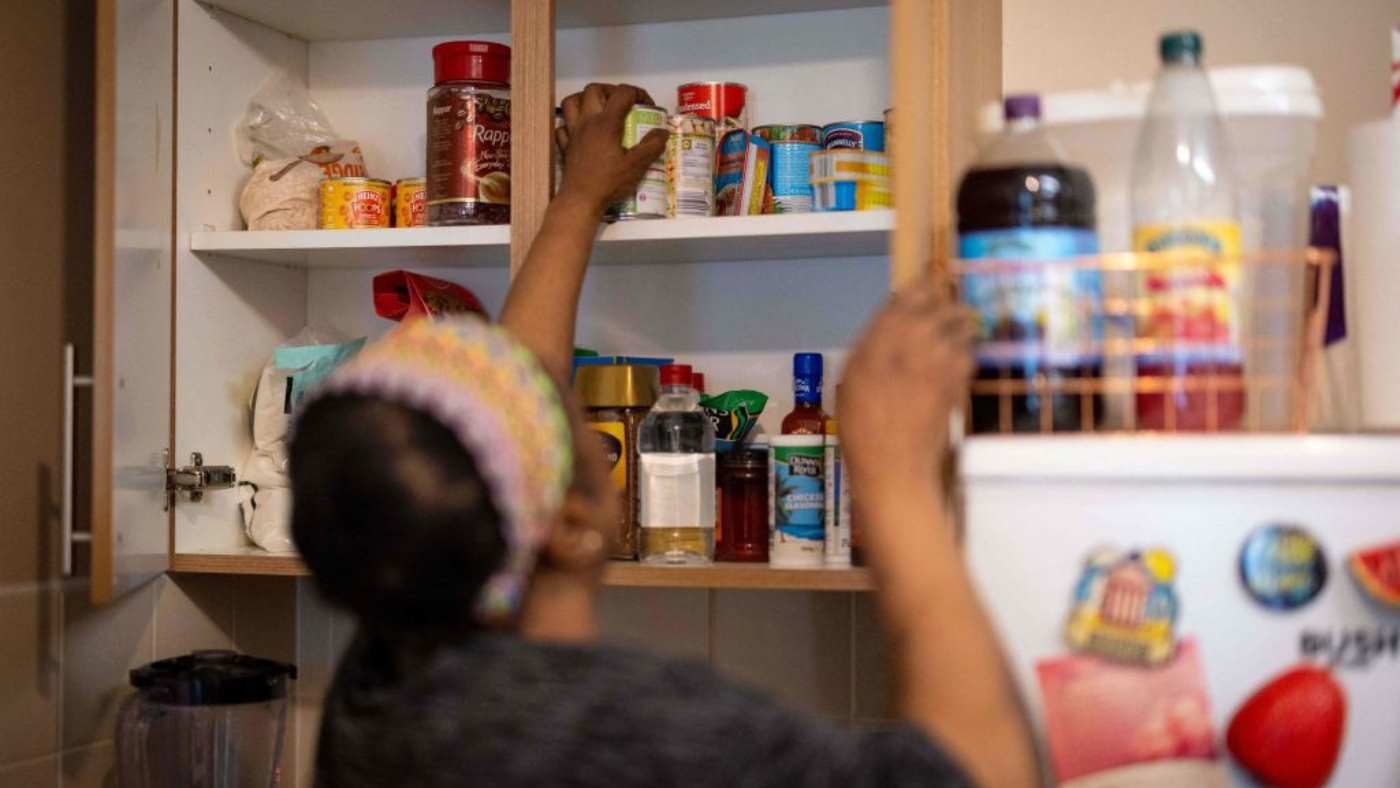
A free daily email with the biggest news stories of the day – and the best features from TheWeek.com
You are now subscribed
Your newsletter sign-up was successful
Tens of millions of people in the UK are cutting back on food shopping, using less energy at home and raiding personal savings as the cost-of-living crisis worsens, the latest data reveals.
The publication of the Office for National Statistics’ (ONS) most recent Opinions and Lifestyle Survey followed the Bank of England’s “dire forecasts” that a 15-month recession is looming, said Sky News.
Of the 2,466 people who responded to the survey, the elderly and people with disabilities were those most likely to be reducing their energy usage “to avoid sky-rocketing bills”, said the Evening Standard.
The Week
Escape your echo chamber. Get the facts behind the news, plus analysis from multiple perspectives.

Sign up for The Week's Free Newsletters
From our morning news briefing to a weekly Good News Newsletter, get the best of The Week delivered directly to your inbox.
From our morning news briefing to a weekly Good News Newsletter, get the best of The Week delivered directly to your inbox.
With inflation expected to rise to more than 13%, warnings are being issued of a tough winter ahead. Paul Johnson, from the Institute for Fiscal Studies, told the BBC: “Most of the inflation that we’ve got coming, we’re stuck with for the next year or so.
“We are going to need to spend a lot more money on supporting households over the rest of this year and next as energy bills rise even further.”
1. Borrowing money
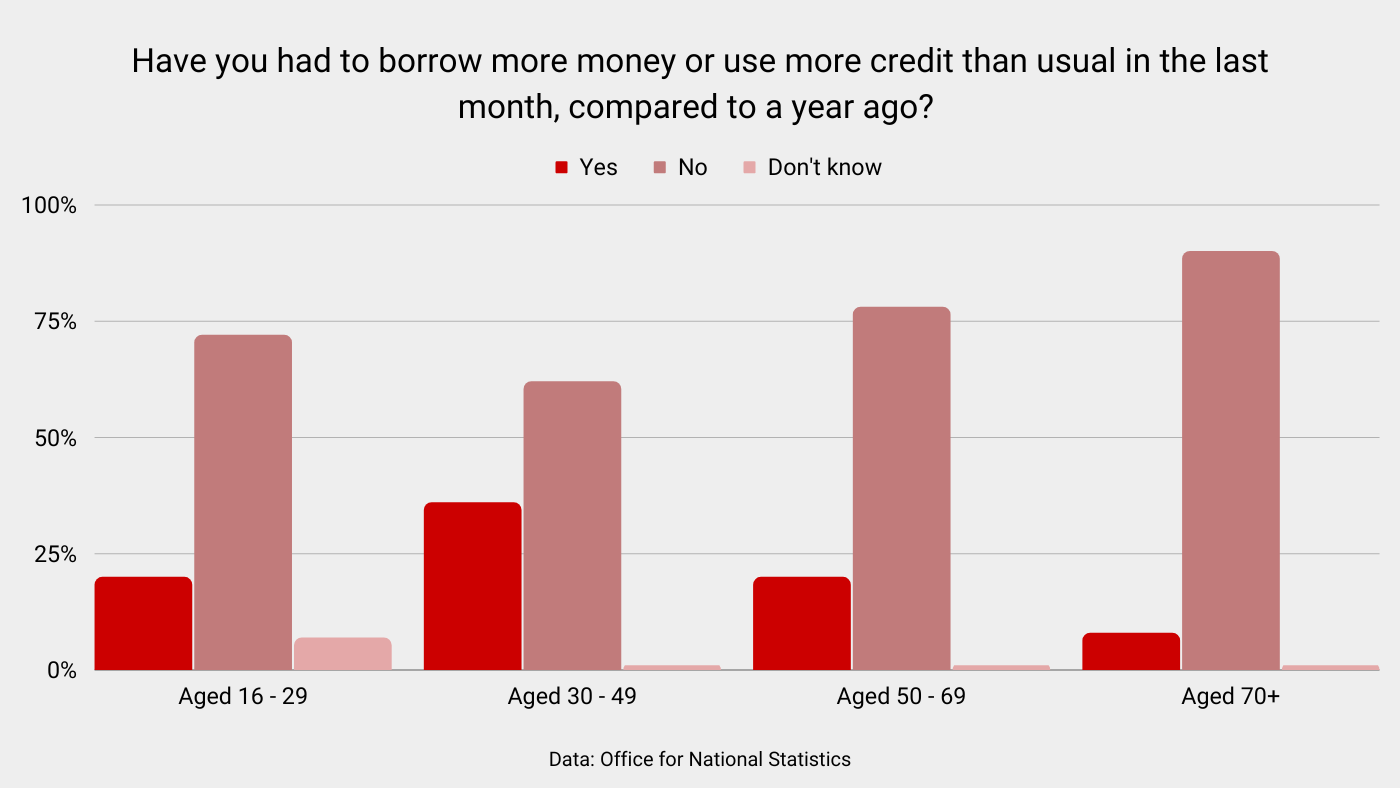
The ONS found that more than one in five people have had to rely on increased borrowing in June compared to the previous year, with 36% of people aged between 30 and 49 having to do so.
Borrowing included using credit cards, overdrafts or taking out loans, as well as being loaned funds from friends, family or other connections.
A free daily email with the biggest news stories of the day – and the best features from TheWeek.com
Money management app HyperJar revealed in June that 13% of people say they are relying on friends to get themselves out of financial trouble. The company’s founder, Mat Megens, said that “friendship has become a vital lifeline amid the cost of living crisis”, reported ABC Money.
2. Able to save
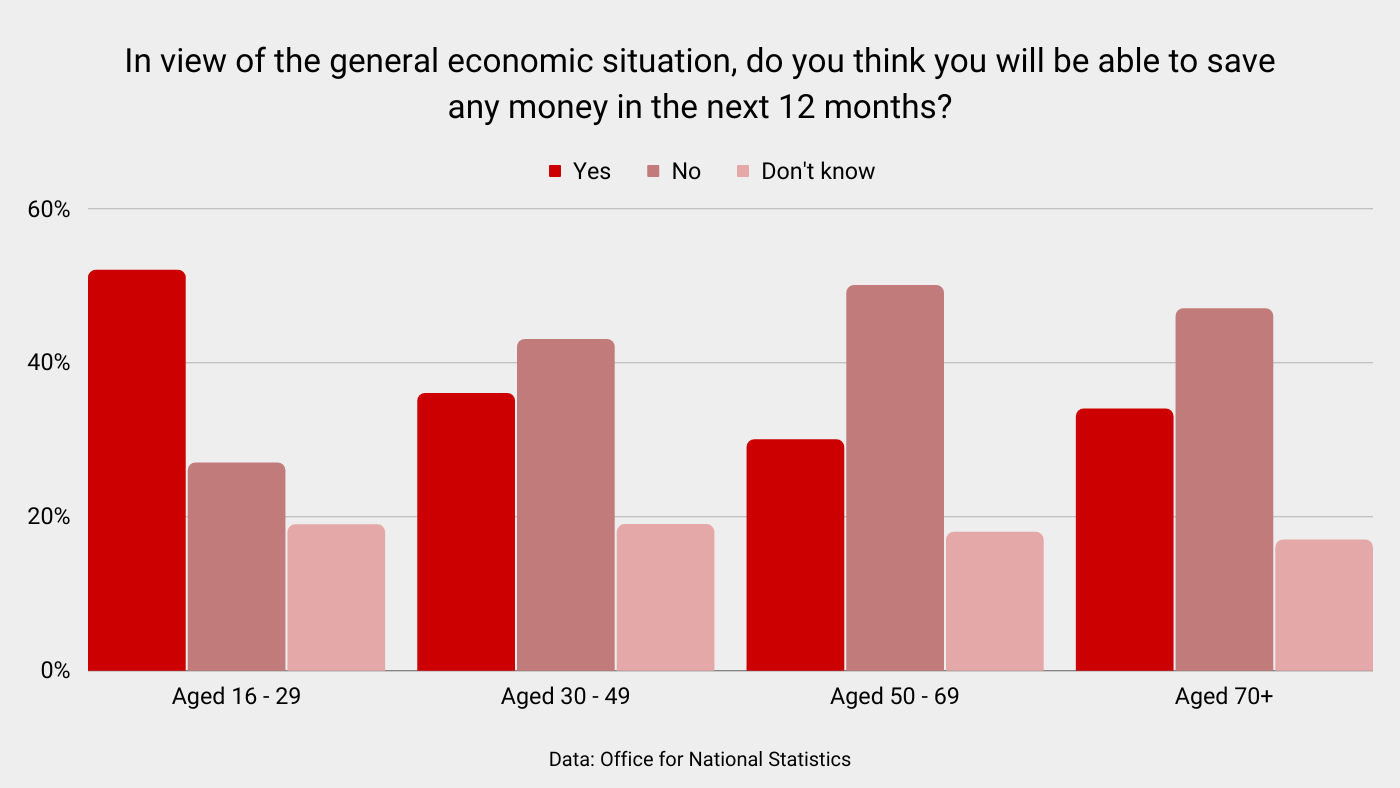
Of the survey respondents, one in two people aged between 50 and 69 said they did not think they would be able to save any money in the next year, while people aged 16 to 29 were the most positive that they would be able to, with 52% answering yes.
Financial experts have urged people to try to continue saving. Independent financial adviser Simon Phillips told the i news site that it is better to try to save a little rather than stopping altogether, “because it’s less likely that you’ll start again”.
3. Lifestyle changes
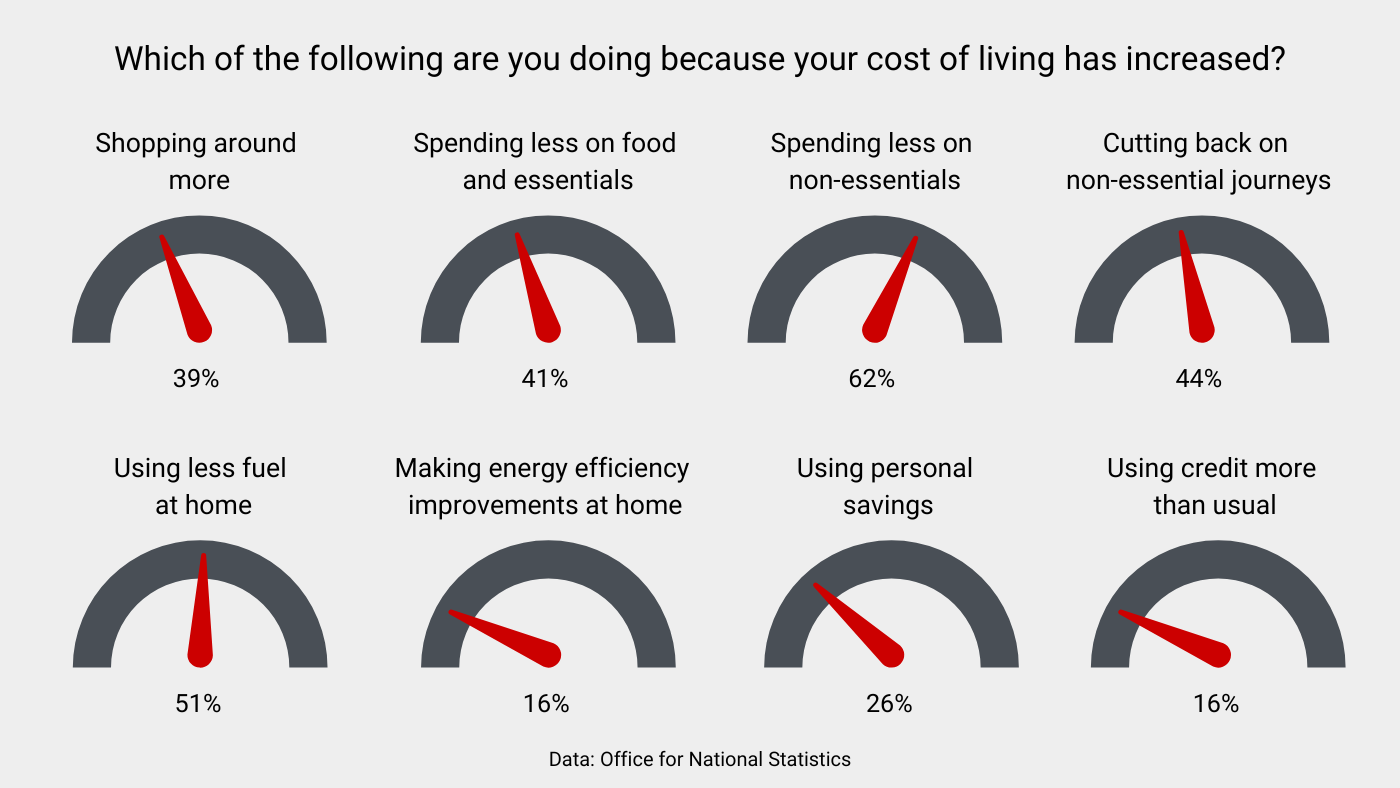
The ONS estimates that 16 million people – 35% of the population – cut back on food and essentials between March and June this year. The figure was 42% among people with disabilities, and people living in England’s most deprived areas.
In its most recent survey, covering 20-31 July, the ONS found that 41% of people now say they have cut back on food and essentials.
More than half of respondents now say they have cut their energy usage at home as a result of rising gas and electricity bills, with 44% also reducing the number of non-essential journeys they made in their personal vehicles in order to save on fuel costs.
4. Costs increasing
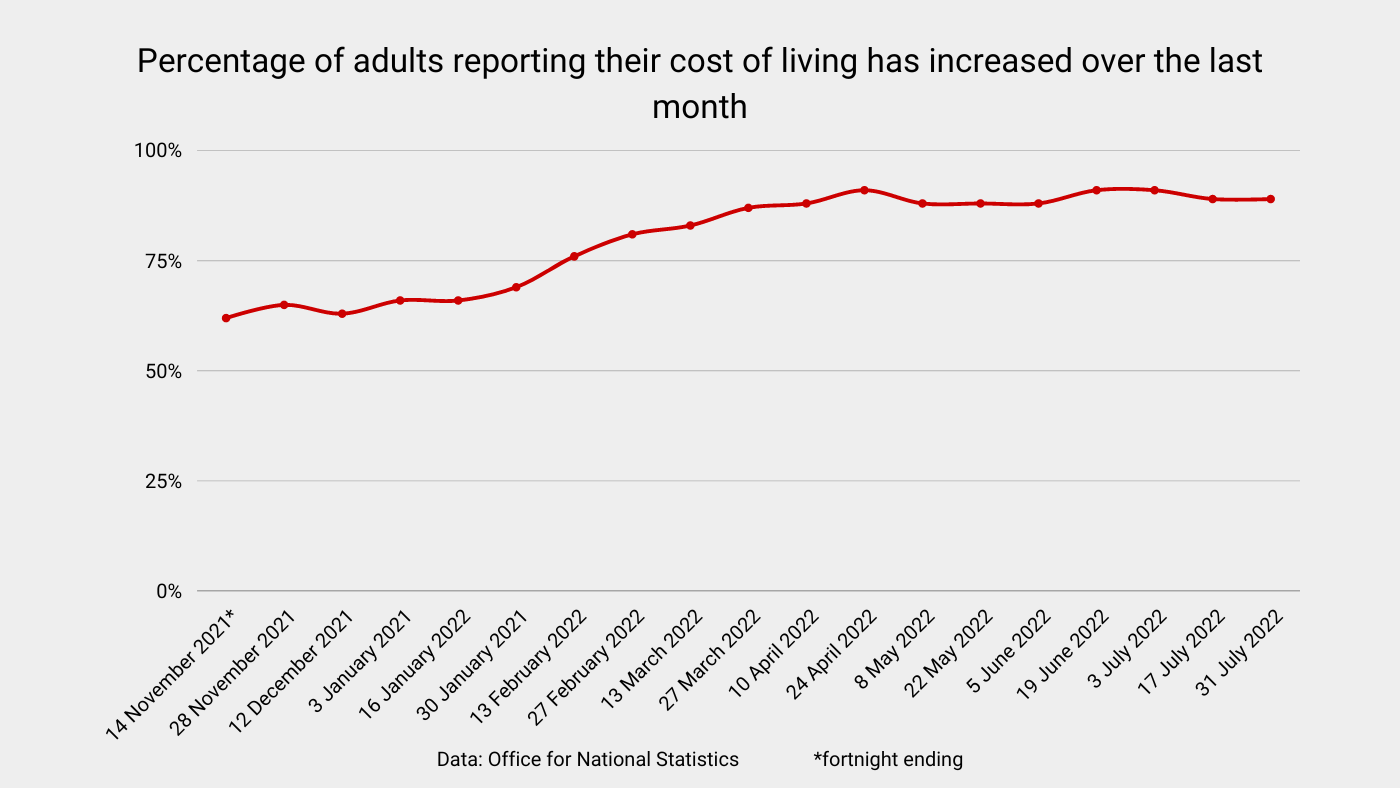
Since November last year, the number of people that have experienced a rise in the cost of living rose from 62% to 89%. That percentage hit over 80% in February, following Russia’s invasion of Ukraine, and has since remained above that number.
April also saw “dramatic overnight changes” for households, said the Big Issue. This included Ofgem raising the energy price cap by 54%, a national insurance increase of 10%, and rises in council tax and water bills. Forecasts now indicate that household energy bills alone could hit £4,000 a year in January.
5. Worry
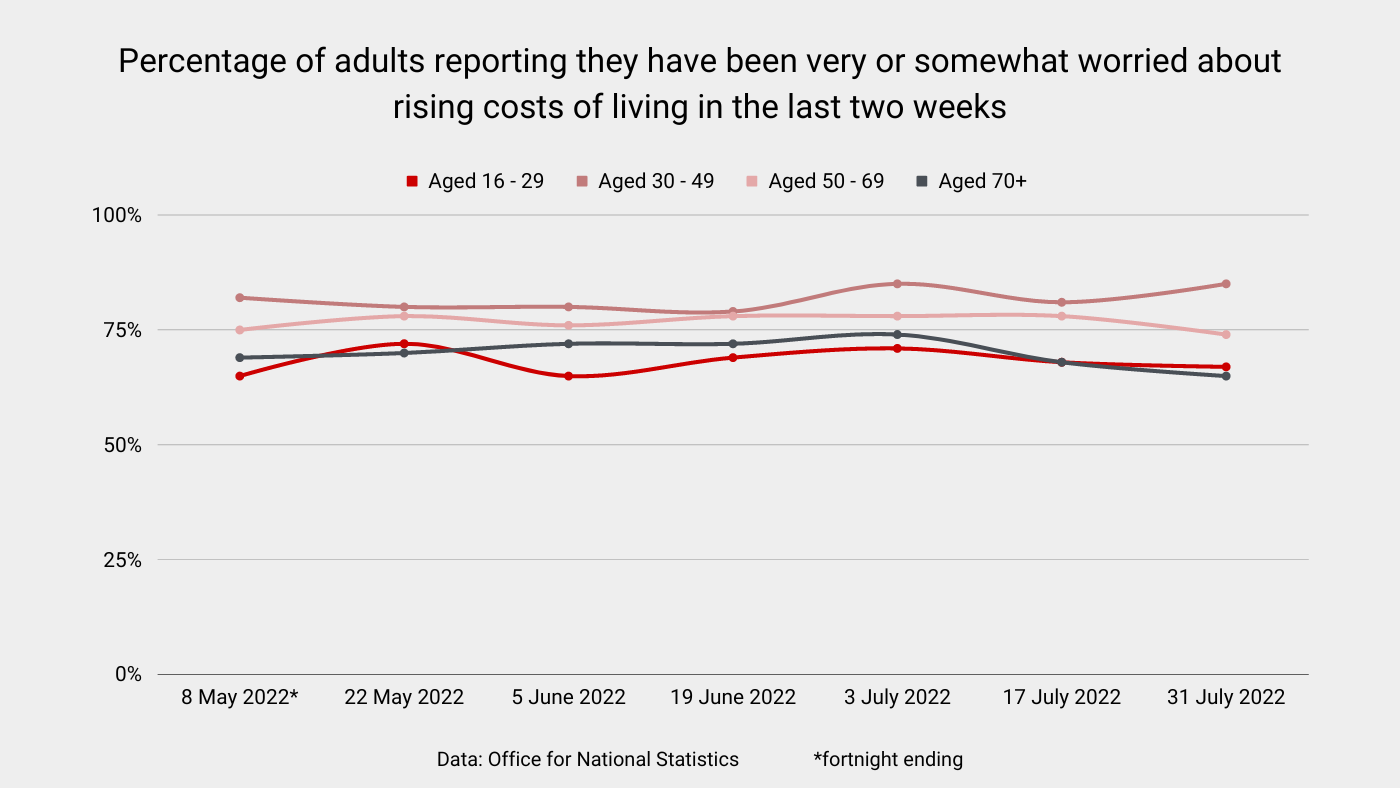
Though the exact percentage has fluctuated somewhat, well over 50% of the population are worried about the rising cost of living. People between the ages of 16 to 29 and the over 70s are the groups reporting the least concern, while people aged 30 to 49 are increasingly worried.
Dr Adrian James, head of the Royal College of Psychiatrists, warned in June that the nation faces a “threat of pandemic proportions” as a result of the cost of living crisis, The Independent reported.
In July, Citizens Advice said it would have helped more people access foodbanks and charitable services that month than in the whole of 2019 and 2020 combined.
Julia O'Driscoll is the engagement editor. She covers UK and world news, as well as writing lifestyle and travel features. She regularly appears on “The Week Unwrapped” podcast, and hosted The Week's short-form documentary podcast, “The Overview”. Julia was previously the content and social media editor at sustainability consultancy Eco-Age, where she interviewed prominent voices in sustainable fashion and climate movements. She has a master's in liberal arts from Bristol University, and spent a year studying at Charles University in Prague.
-
 Where to go for the 2027 total solar eclipse
Where to go for the 2027 total solar eclipseThe Week Recommends Look to the skies in Egypt, Spain and Morocco
-
 The end of mass-market paperbacks
The end of mass-market paperbacksUnder the Radar The diminutive cheap books are phasing out of existence
-
 Political cartoons for February 22
Political cartoons for February 22Cartoons Sunday’s political cartoons include Black history month, bloodsuckers, and more
-
 Will Trump’s 10% credit card rate limit actually help consumers?
Will Trump’s 10% credit card rate limit actually help consumers?Today's Big Question Banks say they would pull back on credit
-
 What will the US economy look like in 2026?
What will the US economy look like in 2026?Today’s Big Question Wall Street is bullish, but uncertain
-
 Is $140,000 the real poverty line?
Is $140,000 the real poverty line?Feature Financial hardship is wearing Americans down, and the break-even point for many families keeps rising
-
 Fast food is no longer affordable for low-income Americans
Fast food is no longer affordable for low-income AmericansThe explainer Cheap meals are getting farther out of reach
-
 Why has America’s economy gone K-shaped?
Why has America’s economy gone K-shaped?Today's Big Question The rich are doing well. Everybody else is scrimping.
-
 From candy to costumes, inflation is spooking consumers on Halloween this year
From candy to costumes, inflation is spooking consumers on Halloween this yearIn the Spotlight Both candy and costumes have jumped significantly in price
-
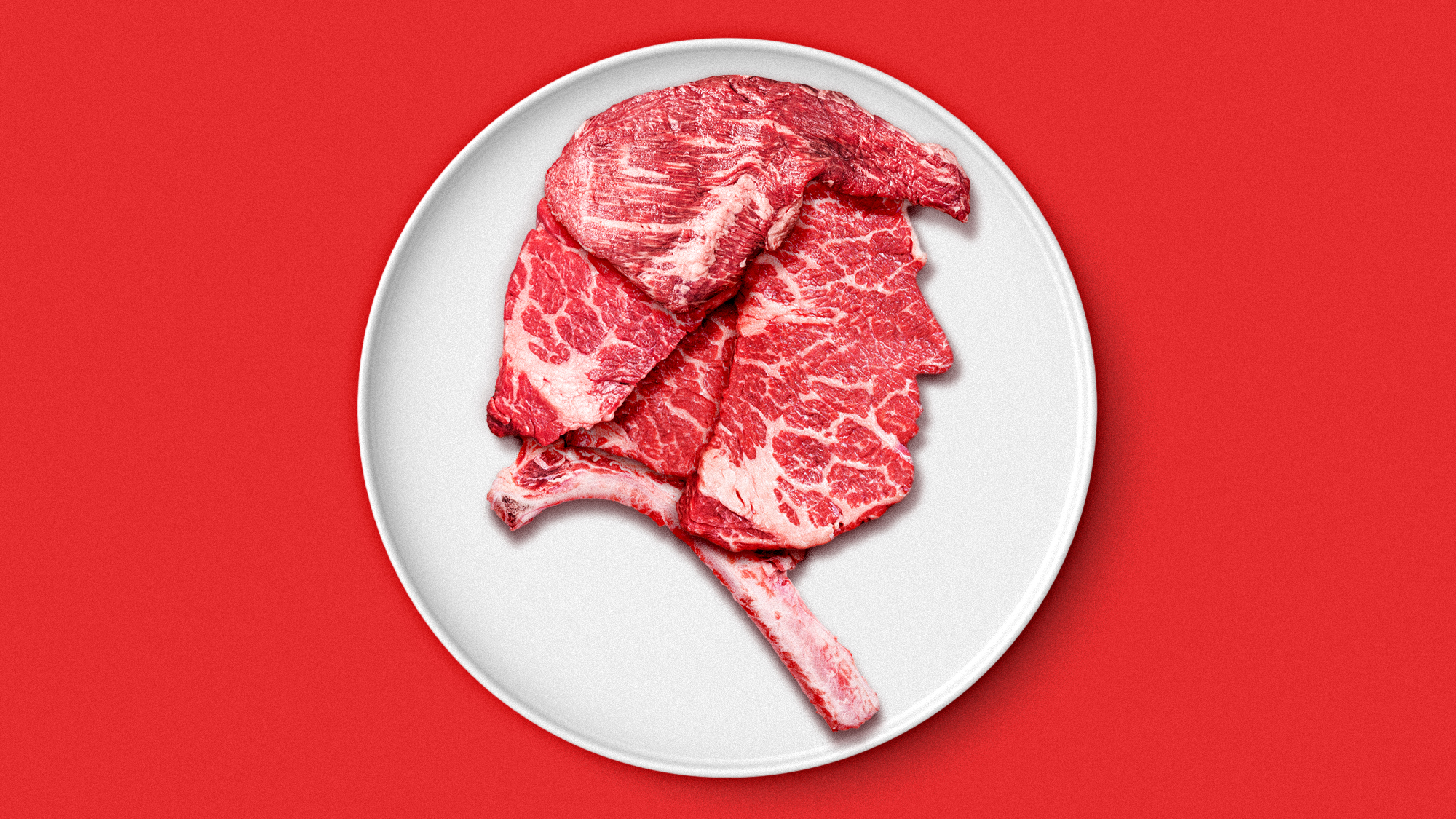 Why are beef prices rising? And how is politics involved?
Why are beef prices rising? And how is politics involved?Today's Big Question Drought, tariffs and consumer demand all play a role
-
 Fed cuts interest rates a quarter point
Fed cuts interest rates a quarter pointSpeed Read ‘The cut suggests a broader shift toward concern about cracks forming in the job market’